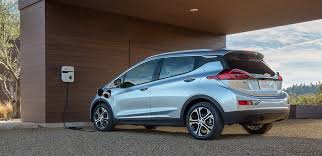 New research is predicting the cost of owning an electric car will fall to the same level as petrol-powered vehicles by next year.
New research is predicting the cost of owning an electric car will fall to the same level as petrol-powered vehicles by next year.
According to new analysis from investment bank UBS, the costs of producing EVs is far lower than previously thought and there is still potential to make further savings, the Financial Times reports.
“This will create an inflexion point for demand,” UBS analysts say.
“We raise our 2025 forecast for EV sales by 50% to 14.2 million – 14% of global car sales.”
The findings are based on its deconstruction of a Chevy Bolt, which it considered to be “the world’s first mass-market EV, with a range of more than 200 miles”.
The 2017 car – which cost US$37,000 ($A49,600) – was taken apart piece by piece and the parts analysed and is $4600 (NZ$6100) cheaper to produce than thought, “with much cost reduction potential left”.
“Once total cost of ownership parity is reached, mass-brand EVs should also turn profitable,” UBS says.
However, UBS predicts manufacturers will not make money on EVs until 2023, which should equal about 5% margin.
Ian Fletcher, principal automotive analyst at IHS Markit, told the Financial Times the death of diesel or petrol cars won’t happen anytime soon.
“But manufacturers are weighing up the investment cost of traditional engines against electric, as well as the levies they face over the emissions of their fleets.”







